Rob Bignell's Blog, page 324
August 27, 2014
Tighten writing by deleting unneeded attribution
If introducing 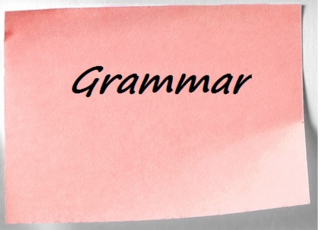 a character through some action, there's no need to add that they “said” something and then provide their line of dialogue. Simply describing what they're doing is sufficient to show that they are giving the next line of spoken dialogue - so long as that dialogue appears in the same paragraph as their described action.
a character through some action, there's no need to add that they “said” something and then provide their line of dialogue. Simply describing what they're doing is sufficient to show that they are giving the next line of spoken dialogue - so long as that dialogue appears in the same paragraph as their described action.
For example, instead of writing:
The nurse decided to step in. She said, “Sweetheart we need to redo these stitches and then get you into surgery and fast. It is dangerous for you to be losing this much blood.”
Write this:
The nurse decided to step in. “Sweetheart, we need to redo these stitches and then get you into surgery and fast. It is dangerous for you to be losing this much blood.”
Need an editor? Having your book, business document or academic paper proofread or edited before submitting it can prove invaluable. In an economic climate where you face heavy competition, your writing needs a second eye to give you the edge. Whether you come from an urban area like California's Inland Empire or a rural area like Loving County, Texas,I can provide that second eye.
<A HREF="http://ws-na.amazon-adsystem.com/widg... Widgets</A>Related articles
 How to properly punctuate dialogue
How to properly punctuate dialogue Tighten writing by cutting begin fallacy
Tighten writing by cutting begin fallacy Create successful story by staging it
Create successful story by staging it Delete bookisms in your story's dialogue
Delete bookisms in your story's dialogue Improve writing's texture by avoiding repetition
Improve writing's texture by avoiding repetition
August 26, 2014
Avoid placing ‘used furniture’ in your story
One of  the most common mistakes novice genre writers make is failing to be creative enough with their new universe. Many have developed a great plot and intriguing characters, but their setting is uninteresting – despite that they’ve taken great pains to describe the landscape and appeal to multiple senses.
the most common mistakes novice genre writers make is failing to be creative enough with their new universe. Many have developed a great plot and intriguing characters, but their setting is uninteresting – despite that they’ve taken great pains to describe the landscape and appeal to multiple senses.
The problem is that haven’t really created a unique universe. Instead, they’ve set the story in an all ready established universe have merely changed the names to give it semblance of originality. After all, how many science fiction stories boast a spacecraft armed with quantum torpedoes and that represents a great interstellar alliance that is exploring the galaxy? The crew is largely human, except the alien first officer, who hails from Alpha Centauri. If the universe sounds like the USS Enterprise of “Star Trek” fame, it is, albeit with a couple of not so subtle variations.
When writers set a story in another author’s universe – whether it be science fiction, a western, or a mystery sent in a cozy cottage town – and then changes the names to conceal it, they are guilty of using used furniture. It’s a term from screenwriting in which furniture and props from other productions are reused in a new episode or show.
Readers generally feel cheated when a writer borrows another universe, especially in the science fiction genre. Think of it this way: Science fiction can take the reader to utterly new worlds and vistas; it’s one of the appeals to readers of the genre. Reading a story set a universe one has already experienced often is like getting the same meal for dinner that you had for lunch. Sometimes a sequel works, but more often than not it’s a lot like eating leftovers.
Need an editor? Having your book, business document or academic paper proofread or edited before submitting it can prove invaluable. In an economic climate where you face heavy competition, your writing needs a second eye to give you the edge. Whether you come from a big city like Tucson, Arizona, or a small town like Zap, North Dakota, I can provide that second eye.
<A HREF="http://ws-na.amazon-adsystem.com/widg... Widgets</A>Related articles
 What if I edit out too much exposition?
What if I edit out too much exposition? Avoid 'As you know' Syndrome in fiction
Avoid 'As you know' Syndrome in fiction
August 25, 2014
Destage dramatic action that slows your story
If your 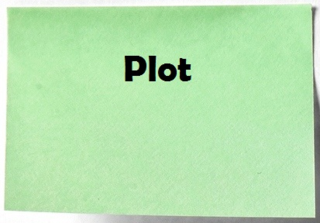 story seems to be moving slowly, you may need to destage some of the action.
story seems to be moving slowly, you may need to destage some of the action.
A term borrowed from theater and coined by CSFW’s Steve Popkes, destaging occurs when the author moves what has been shown onstage to offstage. Onstage action consists of dramatic passages that are presented with great detail for the reader. In contrast, offstage action is that which occurs behind the curtains and so in a story isn’t shown but merely inferred or quickly noted.
The following is an example of onstage action:
Getting into the car, Pliny buckled his seat belt then turned the ignition. Checking over his shoulder, he saw no vehicles coming and so pulled onto the highway. The sun shined brightly through the windows as he drove to the conference center.
However, this could be presented as offstage action by distilling it to the most basic description of what happened:
After driving to the conference center, Pliny…
The above example of onstage action certainly merits destaging. The details of how Pliny started his car and drove to the conference center are simply not dramatic enough to bear so much attention. Because of that, those details slow the story by reducing suspense and tension.
Often even including a quick reference is unnecessary. In the above example, an empty line or set of centered asterisks probably is sufficient between the scene in which Pliny is at the conference center and the previous scene. Hence, the new scene might simply start, At the conference center, Pliny… Exactly how Pliny reached the conference center is irrelevant to the story; it is sufficient to infer that he used a typical, uninteresting mode of transportation for reaching that location.
Of course, sometimes the writer has to do the opposite of destaging. Action that was shown offstage may need to be moved onstage. That requires fleshing out all of the beat-by-beat details of what was simply inferred or quickly noted.
This decision to destage or to move action onstage usually occurs during rewriting.
Need an editor? Having your book, business document or academic paper proofread or edited before submitting it can prove invaluable. In an economic climate where you face heavy competition, your writing needs a second eye to give you the edge. Whether you come from a big city like Detroit, Michigan, or a small town like Carefree, Arizona, I can provide that second eye.
<A HREF="http://ws-na.amazon-adsystem.com/widg... Widgets</A>Related articles
 Shun beautiful writing done for beauty's sake
Shun beautiful writing done for beauty's sake Don't leave reader in fog with vague descriptions
Don't leave reader in fog with vague descriptions To eliminate exposition in story, 'film it'
To eliminate exposition in story, 'film it' Think of your story as if a stage production
Think of your story as if a stage production What is a 'blood and guts' scene?
What is a 'blood and guts' scene?
August 24, 2014
Minneapolis paper mentions editors’ book
Today’s Minneapolis Star-Tribune  briefly mentions my latest book, Hittin’ the Trail: Day Hiking the St. Croix National Scenic Riverway in its “Bedside Table” feature. Written by readers, the feature tells what titles Twin Cities book lovers are enjoying and why. If you’re a Strib subscriber, the article can be found on page E12; if not, it’s available online.
briefly mentions my latest book, Hittin’ the Trail: Day Hiking the St. Croix National Scenic Riverway in its “Bedside Table” feature. Written by readers, the feature tells what titles Twin Cities book lovers are enjoying and why. If you’re a Strib subscriber, the article can be found on page E12; if not, it’s available online.
Need an editor? Having your book, business document or academic paper proofread or edited before submitting it can prove invaluable. In an economic climate where you face heavy competition, your writing needs a second eye to give you the edge. Whether you come from a big city like San Diego, California, or a small town like Eek, Arkansas, I can provide that second eye.
<A HREF="http://ws-na.amazon-adsystem.com/widg... Widgets</A>Related articles
 Second 'Hittin' the trail' guidebook released
Second 'Hittin' the trail' guidebook released Editor's hiking guidebook debuts at No. 26
Editor's hiking guidebook debuts at No. 26 St. Croix 360 features 'Hittin' the Trail' excerpt
St. Croix 360 features 'Hittin' the Trail' excerpt
August 23, 2014
What makes a person a ‘writer’?
Though writing 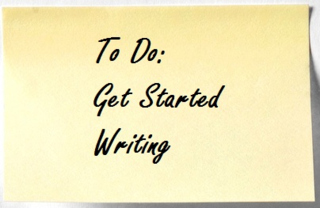 that you’ve read may feel magical, the writer was no magician. Rather than wave a wand leading to instant words on a page, the writer worked hard when constructing that short story, essay or book. Most often, that hard work was pleasurable, though, akin to the feeling members of a sports team get when winning. The sweat yielded its own reward.
that you’ve read may feel magical, the writer was no magician. Rather than wave a wand leading to instant words on a page, the writer worked hard when constructing that short story, essay or book. Most often, that hard work was pleasurable, though, akin to the feeling members of a sports team get when winning. The sweat yielded its own reward.
Authors find pleasure in their work – and so do readers – when living like a writer. No, that doesn’t mean having an open booze bottle next to one’s tablet or spending days in a coffee shop toiling at a laptop. To be a writer doesn’t mean to take on the affectations of famous authors who’ve come before.
No, being a writer generally means possessing five key qualities or personality traits:
Curiosity
Writers find people, our world, and the self interesting and want to know more. They explore their surroundings and themselves in any number of ways – reading, traveling, experiencing first-hand, and more. Writers examine their personal beliefs and boundaries and ask questions that others might never even think to raise.
Observant
Writers notice details that define a person or place. They discover behaviors that suggest something more is below the surface and make connections that the average person would not otherwise see.
Love of words
Writers revel in the sounds and meanings of words and sentences and passages; they delight in the poetry of language, feel the fire and ice of words. Anyone can be curious and observant, but writers don’t express what they’ve seen or experienced via a painting, song, dance or sculpture but through words on a page. Words are their passion.
Imaginative
Whether writing nonfiction or fiction, prose or poetry, or novels or screenplays, writers are creative. They not only discover intriguing relationships in people’s lives and the universe but can weave words about those associations into gripping sentences and passages.
Write all the time
Most important of all, a writer must write. Writers possess not just the courage to share their observations and personal feelings but a fervor for doing so. They feel empty when they do not write, whether it be to inform, to entertain or to persuade.
Need an editor? Having your book, business document or academic paper proofread or edited before submitting it can prove invaluable. In an economic climate where you face heavy competition, your writing needs a second eye to give you the edge. Whether you come from a big city like Tampa, Florida, or a small town like Deadhorse, Alaska, I can provide that second eye.
<A HREF="http://ws-na.amazon-adsystem.com/widg... Widgets</A>Related articles
 Coming up with great story ideas
Coming up with great story ideas What is a writer's 'natural' temperament?
What is a writer's 'natural' temperament? To self-publish or not to self-publish?
To self-publish or not to self-publish?
August 22, 2014
Editing client pubished second novel in trilogy
A recent 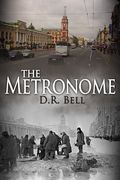 editing client of mine, D.R. Bell, has published his second novel, the action-adventure thriller “The Metronome.” The story tells the tale of Pavel Rostin, who as trying to solve the mystery of his father’s death find himself drawn deeper and deeper into his family’s past – and his country’s future. From starving 1941 Leningrad to free-wheeling Moscow of the mid-1990s to bubbly 2006 Wall Street, Pavel uncovers a web of money, murder, revenge and evidence of a plot involving the world’s superpowers. The choices of right and wrong don’t look as clear cut as in newspaper headlines. But is he just a pawn in someone else’s game? “The Metronome” is the first book in “The Counterpoint” trilogy and a prequel to the already published “The Great Game.” The novel can be purchased online.
editing client of mine, D.R. Bell, has published his second novel, the action-adventure thriller “The Metronome.” The story tells the tale of Pavel Rostin, who as trying to solve the mystery of his father’s death find himself drawn deeper and deeper into his family’s past – and his country’s future. From starving 1941 Leningrad to free-wheeling Moscow of the mid-1990s to bubbly 2006 Wall Street, Pavel uncovers a web of money, murder, revenge and evidence of a plot involving the world’s superpowers. The choices of right and wrong don’t look as clear cut as in newspaper headlines. But is he just a pawn in someone else’s game? “The Metronome” is the first book in “The Counterpoint” trilogy and a prequel to the already published “The Great Game.” The novel can be purchased online.
Need an editor? Having your book, business document or academic paper proofread or edited before submitting it can prove invaluable. In an economic climate where you face heavy competition, your writing needs a second eye to give you the edge. Whether you come from a big city like Tampa, Florida, or a small town like Deadhorse, Alaska, I can provide that second eye.
<A HREF="http://ws-na.amazon-adsystem.com/widg... Widgets</A>Related articles
 Editing client, Ed Wyns, publishes first novel
Editing client, Ed Wyns, publishes first novel Editing client publishes her first fantasy novel
Editing client publishes her first fantasy novel
August 21, 2014
Try ‘taster book’ if new to self-publishing
If new  to self-publishing, consider doing a “taster book” first. A taster book has a low word count (and subsequently few pages) that you can use to learn the self-publishing process. If a fiction writer, it might be a collection of two or three short stories; if a nonfiction writer, it might be a three or four brief articles.
to self-publishing, consider doing a “taster book” first. A taster book has a low word count (and subsequently few pages) that you can use to learn the self-publishing process. If a fiction writer, it might be a collection of two or three short stories; if a nonfiction writer, it might be a three or four brief articles.
Like a sample taste of a food, a “taster book” can give you a good idea of what is to come before you pile your plate too high. Because the volume is short, when errors are made in formatting, the book can be quickly corrected. And because the volume isn’t the one work you really want to be known for or sell to promote your business, if it doesn’t turn out perfect, there’s nothing lost. Indeed, you can keep correcting and reloading until you get it right or even can pull it from the market.
Almost anyone new to the self-publishing process will find elements of it confusing and make a few unintended errors the first time they go through it. Still, the process is simple enough that with familiarity comes ease of use. Think of it this way: The first time you got behind the wheel of a car probably felt a bit overwhelming and probably loaded with a few lurching tops and starts. Now that you’ve driven a vehicle for thousands of hours, however, it’s second nature and you even anticipate potential driving problems (bad weather, taking detours, erratic drivers ahead of you) before encountering them.
Of course, if your taster book works out, you now have the advantage of being able to offer two books for sale once the title you really want to publish is available for sale.
Need an editor? Having your book, business document or academic paper proofread or edited before submitting it can prove invaluable. In an economic climate where you face heavy competition, your writing needs a second eye to give you the edge. Whether you come from a big city like Raleigh, North Carolina, or a small town like Strong, Maine, I can provide that second eye.
<A HREF="http://ws-na.amazon-adsystem.com/widg... Widgets</A>Related articles
 Always review proof your book before okaying it
Always review proof your book before okaying it Where to find reviewers for your book
Where to find reviewers for your book
August 20, 2014
A check on bad grammar: Rein vs. reign
Our writing 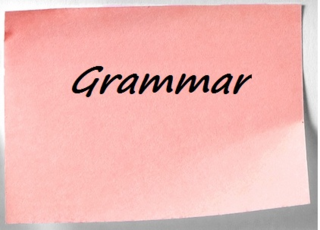 would read much better if only we would curb the misuse of rein vs. reign!
would read much better if only we would curb the misuse of rein vs. reign!
Rein refers to the strap used to control a horse, and so from that, if someone wishes to restrain something (and that usually will require an effort on your part), it would be reined in, or if you wish to loosen your hold, you might give it free rein. To wit: Laura realized she had to rein in her expenses or soon would be broke.
Reign refers to the rule of a king or dictator over a country: Hitler’s reign lasted 12 years.
Hopefully the era of misusing of these two words has now come to an end!
Need an editor? Having your book, business document or academic paper proofread or edited before submitting it can prove invaluable. In an economic climate where you face heavy competition, your writing needs a second eye to give you the edge. Whether you come from an urban area like California's Inland Empire or a rural area like Loving County, Texas, I can provide that second eye.
<A HREF="http://ws-na.amazon-adsystem.com/widg... Widgets</A>
Related articles
 Cleaner grammar: Bated breath vs. baited breath
Cleaner grammar: Bated breath vs. baited breath Heart of the matter: Core vs. corps
Heart of the matter: Core vs. corps Concrete advice on literally vs. figuratively
Concrete advice on literally vs. figuratively Crack a joke - but only for a good reason
Crack a joke - but only for a good reason How to find a good editor or proofreader
How to find a good editor or proofreader
August 19, 2014
Use care when naming places in your story
When creating  a setting for your story, always pay special attention to what you name those places. After all, naming places that your characters inhabit and visit help readers keep track of where the character is. But more so than that, names of places help form a story’s tone. The name of a place implies something about its history, and especially in fiction about what the place is like now.
a setting for your story, always pay special attention to what you name those places. After all, naming places that your characters inhabit and visit help readers keep track of where the character is. But more so than that, names of places help form a story’s tone. The name of a place implies something about its history, and especially in fiction about what the place is like now.
When selecting a name for a place – whether it be a town, a county, a street, neighborhood, geographical feature, or building – follow a couple of simple guidelines. First, names should be familiar enough to be understood but not so unusual as to be distracting. A common enough problem with real places is that they have unpronouncable names, and you probably don’t want that to be an issue in your story. Secondly, don’t use place names similar to your characters’ names. For example, if your main characters’ last name is Bostwick, don’t set the story in Boston or use other place names that begin with the letter B. This only runs the risk of confusing readers.
If using actual places are used in your story, always be accurate in your presentation of them. Readers should be able to drive to major landmarks and on major streets that you mention at those locations, so that the story provides an air of authenticity. If you write that I-43 heads through Phoenix, Arizona, readers who live there or have been to Phoenix for any length of time will know that’s inaccurate and find it a distraction. Readers familiar with the area, however, will delight in seeing the location accuratly described.
Should you need to make up a name for a place, there are a number of strategies you might use. With examples of actual city/county names, these approaches include:
g Historical figures – Sometimes a place is named after a settler, military leader, Indian chief, or president. Examples include Austin (for Stephen F. Austin), Houston (for Sam Houston), and Washington (for George Washington).
g Geography/geology – Often communities are named after a prominent, nearby feature on the landscape, such as Detroit (for the strait in Lake Erie), Sacramento (afte the Sacramento River), and Salt Lake City (Great Salt Lake).
g Flora/fauna – Likewise, communities frequently are named after a plant or animal that dominates an area, like Hickory (in North Carolina) or Albatross (in Missouri).
g Beloved individuals – Many places are named after beloved wives and daughters or for religious figures; for example, San Francisco (for Saint Francis), Atlanta (daughter of a railroad magnate), and San Diego (for Saint James).
g Economic mainstay – If a town was founded to exploit some resource or was a center of some industry, it might be named for the mineral or product there, such as Orange County (in California) or Portland (in Oregon).
g European place names – Settlers sometimes named their community after the place they came from in Europe or on the East Coast, like New York City, New Orleans, and New Haven.
g Natives’ names – Often European settlers used Anglicized versions of the natives’ name for an area, as was the case with Chicago (the Miami-Illinois word for “wild onion”), Miami (the Calusa word for “big water”), and Tampa (the Calusa word for “place to gather sticks”).
When selecting a place name, incorporate it into the backstory of your fictional place. Ask how the town came to be given that name. In addition, think about the meaning of the place’s name and see if it can be used as a symbol your story. For example, “Guthrie” is an English surname meaning “windy place”; perhaps in your story, the wind plays an important role in establishing the feel of a place or as a symbol in the story, making “Guthrie” a good name for a town or county.
Need an editor? Having your book, business document or academic paper proofread or edited before submitting it can prove invaluable. In an economic climate where you face heavy competition, your writing needs a second eye to give you the edge. Whether you come from a big city like Los Angeles, California, or a small town like Hell, Michigan, I can provide that second eye.
<A HREF="http://ws-na.amazon-adsystem.com/widg... Widgets</A>Related articles
 Benefits, pitfalls of flat characters
Benefits, pitfalls of flat characters
August 18, 2014
Remain wary of using fast-forward in story
A literary 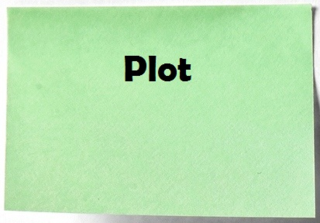 device that’s often overused by novice writers is that of the fast-forward. This involves taking the story out of its timeline by going to a point in the future. In doing so, the scene reveals important events that are yet to occur in the story. It’s sometimes referred to as prolepsis.
device that’s often overused by novice writers is that of the fast-forward. This involves taking the story out of its timeline by going to a point in the future. In doing so, the scene reveals important events that are yet to occur in the story. It’s sometimes referred to as prolepsis.
This is the opposite of a flashback, in which the narrative goes back in time to reveal important events that occurred prior to the story began.
A good example of a fast-forward is Charles Dickens’ The Christmas Carol when the Ghost of Christmas Yet to Come shows Scrooge his future. Larry Watson also uses the technique in Montana, 1948 when he begins the story with the main character recalling images of the novel’s climax.
Unlike foreshadowing, which is merely a hint of what might occur, a flash-forward shows the actual dramatic events that are will occur in the story.
There are good reasons to use a fast-forward. When done properly, a fast-forward can help reveal the main character’s personality. This is the strategy Dickens uses in The Christmas Carol, as we learn through the scene showing how he’ll be remembered that Scrooge actually does care about what others think of him; this in turn influences his decision in the present timeline. A flash-forward also can be used to establish an event that is of high interest and so is a hook to encourage the reader to find out how the story will reach that point; in such instances, it often used as a prologue, as Watson does in Montana, 1948.
Despite these good uses of the literary device, writers always should hesitate to use a fast-forward. Unless it’s a really big, climactic scene that actually would hook the reader into working through an entire story and unless it really does reveal something significant about the character, writers risk reducing suspense and tension by revealing what will happen. This is especially true of minor scenes involving minor characters. If the reader knows the outcome, then there’s little reason to read the intervening text. After all, authors build suspense in part by leaving in question what the outcome of a decision or situation will be.
Need an editor? Having your book, business document or academic paper proofread or edited before submitting it can prove invaluable. In an economic climate where you face heavy competition, your writing needs a second eye to give you the edge. Whether you come from a big city like New York, New York, or a small town like Bantam, Connecticut, I can provide that second eye.
<A HREF="http://ws-na.amazon-adsystem.com/widg... Widgets</A>Related articles
 When should you start a new novel chapter?
When should you start a new novel chapter? Use bait-and-switch device carefully in stories
Use bait-and-switch device carefully in stories What is a 'blood and guts' scene?
What is a 'blood and guts' scene? Avoid dumping backfill into your story
Avoid dumping backfill into your story



